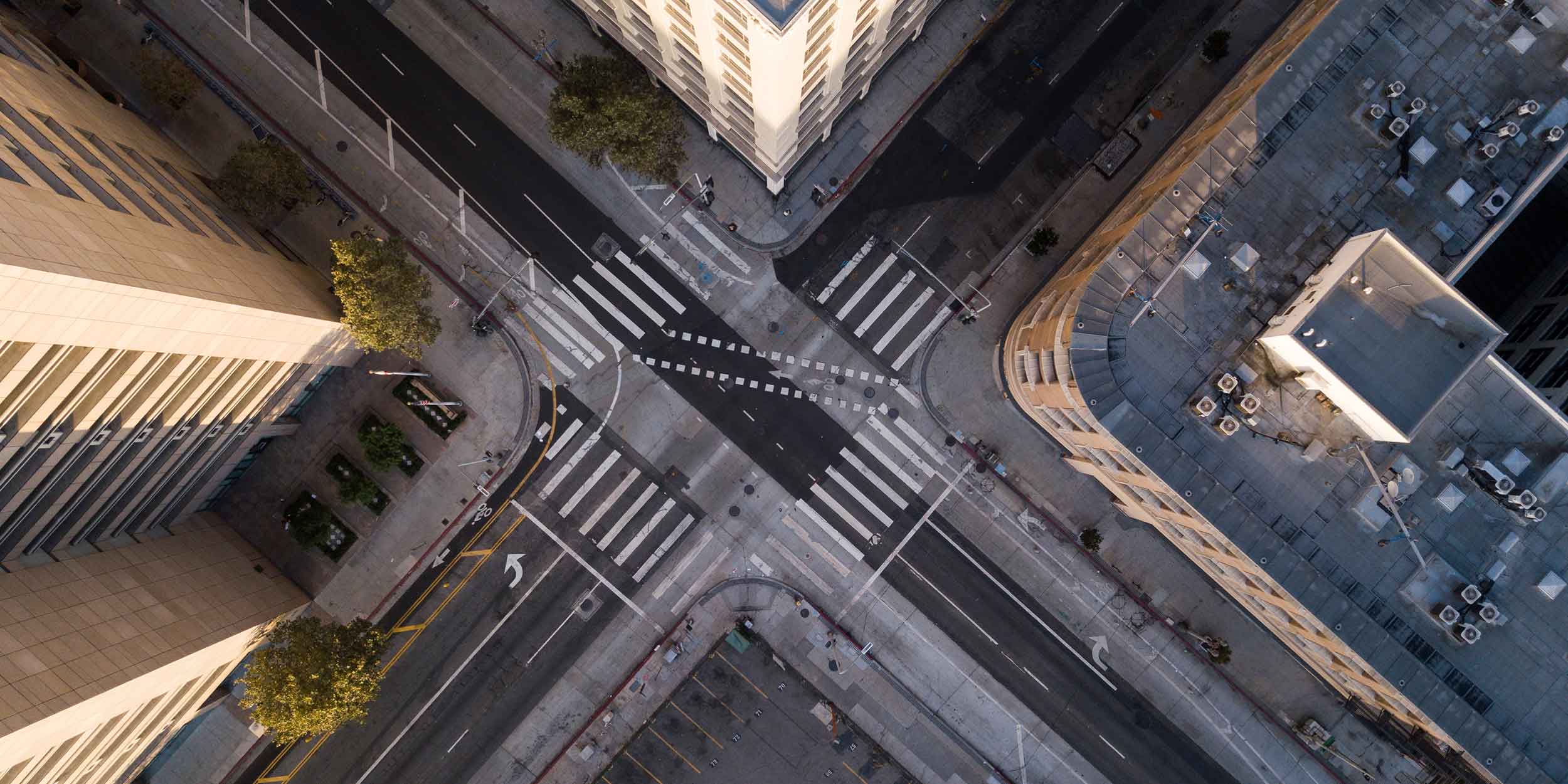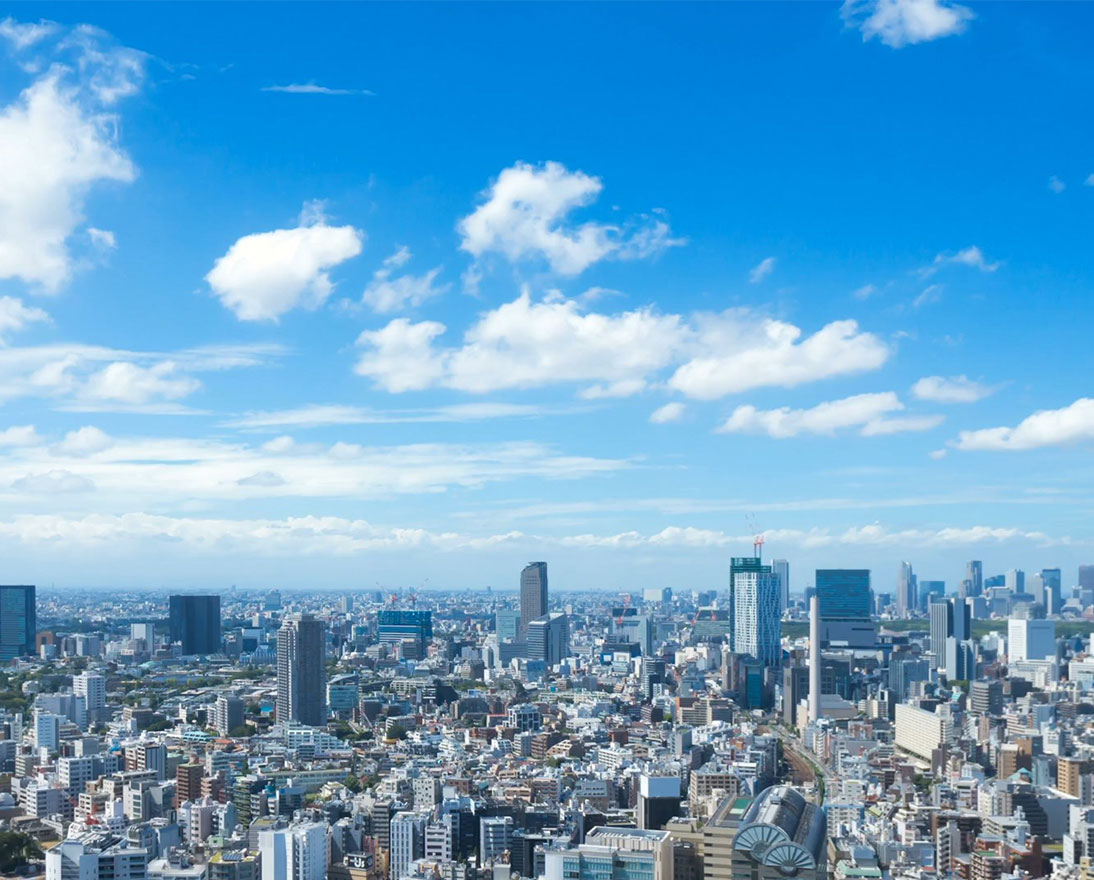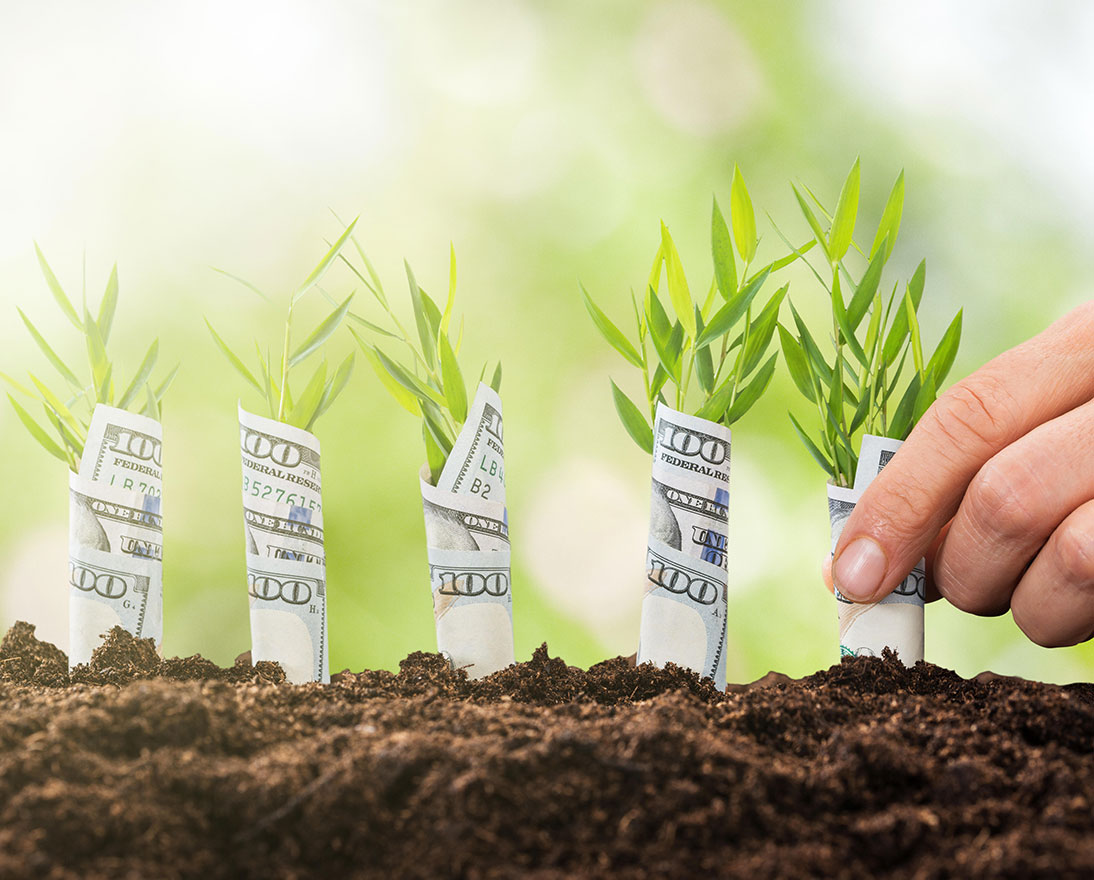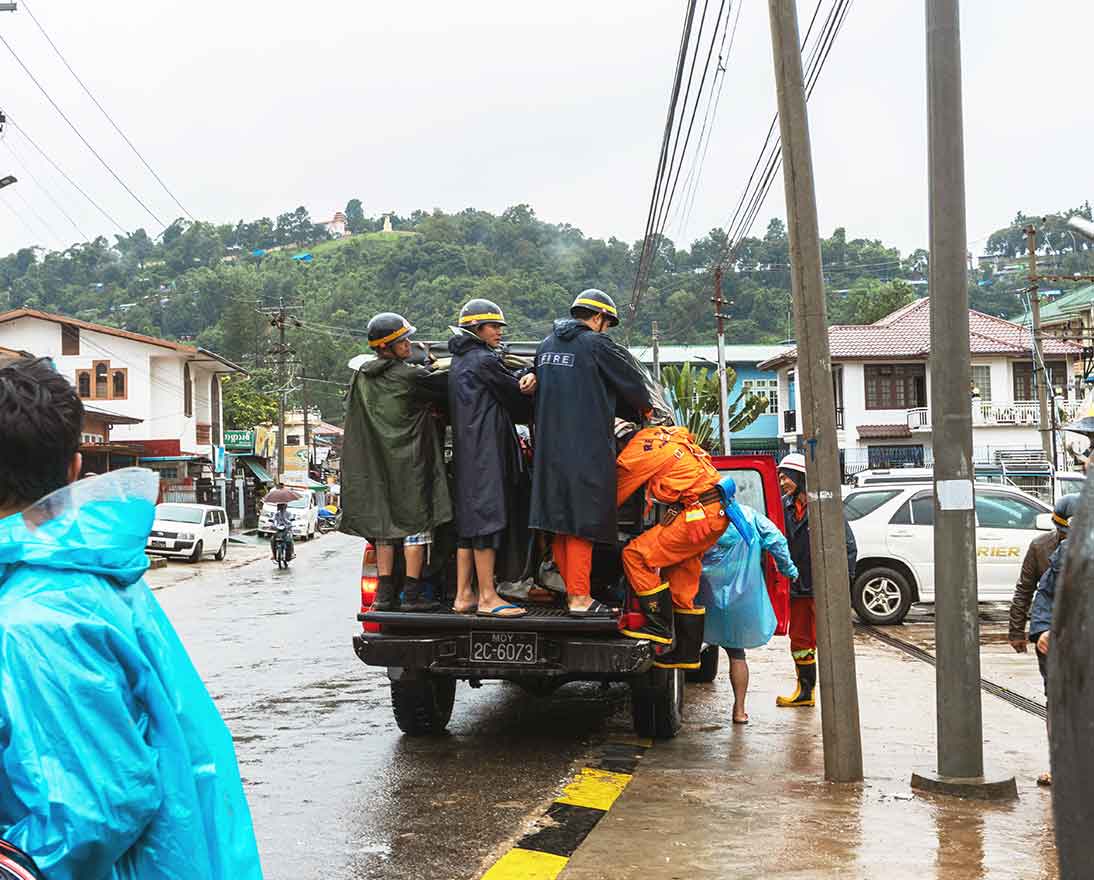The Climate Crossroads
Climate resilienceArticleSeptember 28, 20205 min read
As the focus shifts to recovering from Covid-19, will we take decisions that restore economies and support the ‘green’ agenda? Alison Martin, CEO EMEA & Bank Distribution, says there will be no point in rebuilding economies and lives if we sacrifice the future of the planet.
We’re at a pivotal moment when it comes to global warming. As the focus shifts to rebuilding and recovering from Covid-19, we need to make decisions to restore shattered economies, but will they also contribute to the commitments in the Paris Agreement?
If there is a silver lining to something as catastrophic as Covid-19, it’s the environmental boost and the slowdown in greenhouse gas emissions that we experienced in the early part of the year.
As industrial output plummeted, and as cars disappeared from roads and planes were grounded, people worldwide noticed a positive effect on their surroundings. The air was cleaner, there was less pollution, and nature began to restore the balance.
Surely after experiencing this glimpse into a 1.5°C future we won’t go back to our carbon-intensive lifestyles?
But the fear is we could. Even before the pandemic struck, there were concerns about achieving the UN target to limit global warming to 1.5°C. Now Covid-19 may undermine concrete action as well as good intentions.
Are lower emissions just a short-term blip?
The International Energy Agency reported that global greenhouse gas emissions are predicted to fall by 8% in 2020 compared with 2019, to levels of 10 years ago. At their peak in early April 2020, daily global emissions decreased by -17% compared with the mean 2019 levels, according to the Global Carbon Project.
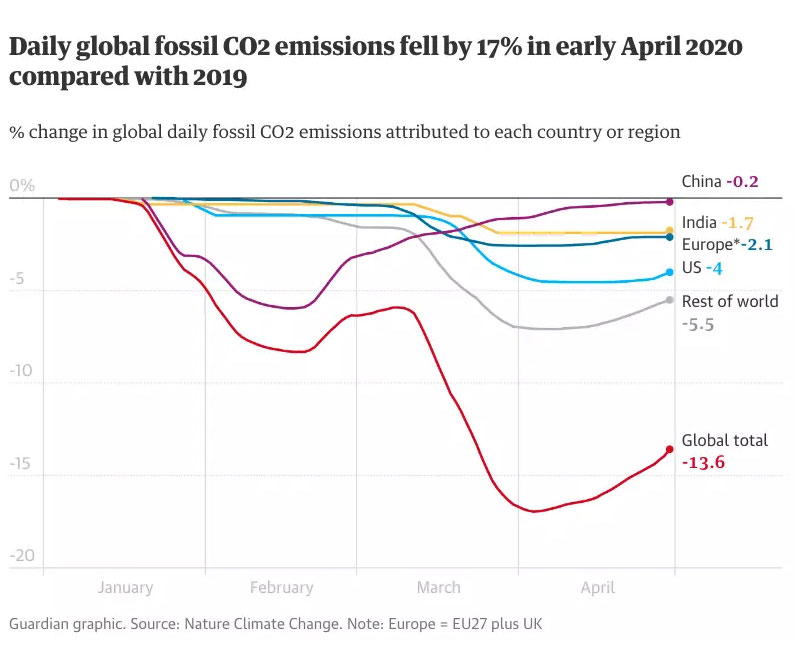
But by early June, the Global Carbon Project found that emissions had rebounded to within 5% of 2019 levels as countries lifted lockdown measures. This appears to indicate that any reduction in emissions is purely temporary and that we’re set to return to the same depressing upwards trajectory.
We have already seen resolve weaken in the quest to build back regardless, rather than to build back better, with some governments relaxing or suspending environmental protection regulations to stimulate industrial activity.
As governments, businesses and individuals focus on restoring economies and livelihoods, it is too easy to be stuck on the notion that the old unsustainable practices are the only practical option, with green now merely ‘nice to have’.
Repeating mistakes?
This wouldn’t be the first time an economic recovery comes at the detriment of the environment. The 2008–2009 global financial crisis saw global CO2 emissions decline -1.4% in 2009, immediately followed by growth of +5.1% in 2010, well above the long-term average. Emissions soon returned to their previous path almost as if the crisis had not occurred.
Let’s not repeat the same mistake. We must separate our economic priorities from the slower-moving, but ultimately greater, threat from climate change.
If we neglect climate change as the most important existential global risk, there will be no point in rebuilding economies and lives if we sacrifice the future of the planet.
The recovery from Covid-19 is not a choice between economic recovery vs. green agenda, but an opportunity to achieve one with the other. We must take decisions in the firm belief that embedding green policies can be a catalyst for economic growth, while having a positive impact on our health and wellbeing.
Unless we build a green stimulus into all our recovery plans, we’ll suffer the long-term consequences. It’s the wrong moment to slow the momentum, for example, for carbon pricing or to ease up on the removal of fossil fuel subsidies.
No quick-fix vaccination
Nor must we be diverted from developing cleaner and more efficient forms of energy, or lose enthusiasm for investments that promote sustainability. Now is the time to redouble our green efforts.
It won’t be easy. Transitioning to a global economy that decarbonizes, maintains prosperity, and decreases inequality at the same time will be a Herculean challenge. There is no quick-fix vaccination.
But Covid-19 provides hope. Governments and businesses across the world have shown in their response to the pandemic that they have the power, flexibility, and speed to deal with a global crisis. With the same determination, they can tackle the climate change crisis.
As we come to this climate crossroads, we are clear at Zurich that our path has not changed. We remain committed to the UN Business Ambition Pledge we signed in June 2019 to limit global temperature rise to 1.5°C.
We need everyone to follow a green path. Covid-19 brought us all together as a global community to combat one of the deadliest pandemics to hit our planet in the past one hundred years. Let’s use that same spirit and solidarity to tackle the biggest existential threat over the next century.???
